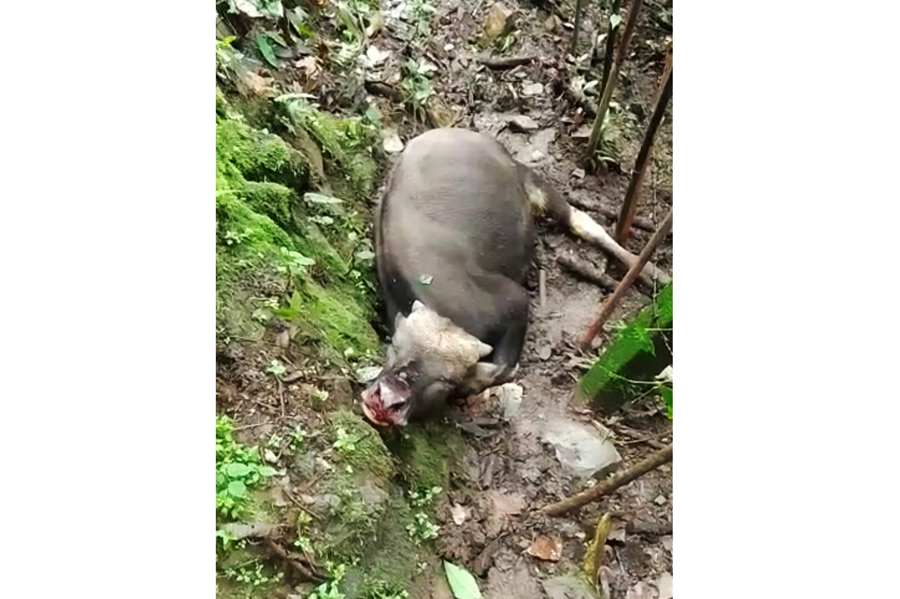FRIDAY, AUGUST 08, 2025
- Home
- Wolf attacks leave trail of livestock deaths in Phek's Thüvopisü village
Wolf attacks leave trail of livestock deaths in Phek's Thüvopisü village
Wolf attacks in Thüvopisü village result in mithun and goat deaths; villagers seek protection and government intervention.
Published on Aug 7, 2025
Share

KOHIMA — A series of suspected wolf attacks on livestock has left villagers in Thüvopisü, Phek district, increasingly alarmed, with the most recent incident reported on August 6.
According to residents, the attacks have led to the deaths of several mithuns and goats over the past few years. Tavesuh Tetseo, a local resident, told Eastern Mirror that while predation of livestock is not new, the frequency and impact have worsened.
Earlier this year, around 50 goats were reportedly killed in attacks on goat farms. An additional 20 goats were killed last year, he said.
Besides goats, Tetseo said two mithuns were killed earlier this year, while another was attacked and killed on August 6. There are also unconfirmed reports of other mithuns being attacked, with some carcasses left decomposed or never recovered.
Also read: Wild elephants cordon Wokha district amid ongoing conflict
Thüvopisü is surrounded by dense forest stretching from the Mt. Zanibu range to Dzüdü Lake, making it difficult to track or guard against wild animal attacks.
While there have been speculations of tiger activity, villagers believe the recent incidents were likely carried out by wolves, based on the nature of the wounds, which were mostly inflicted from behind.
Tetseo noted that despite efforts using bio-traps, villagers have been unable to contain the threat. He added that hunting bans and restrictions on gun ownership—enforced by both government and community bodies—have further limited the community’s ability to protect their livestock.
While the ICAR–National Research Centre on Mithun continues to provide vaccinations and care, he said that no other agency has intervened to assess or compensate for the losses.
Read exclusive: Shamator district still struggling with infrastructure, three years after inception
Village Council Chairman Vetsuta Venyo told this newspaper that villagers consider mithuns, which are central to their livelihood and culture, as their greatest asset. The recurring attacks have caused significant losses, with no clear mechanism for compensation or support.
He reiterated that villagers are bound by hunting bans imposed by the Chakhesang Public Organisation and Chakhesang Youth Front. “It has become impossible to take any action against the predators,” he said, adding that residents are left to endure the losses year after year.
Venyo appealed to the department of Environment, Forest and Climate Change and other relevant agencies to step in with practical measures to help farmers protect their livestock from further attacks.

